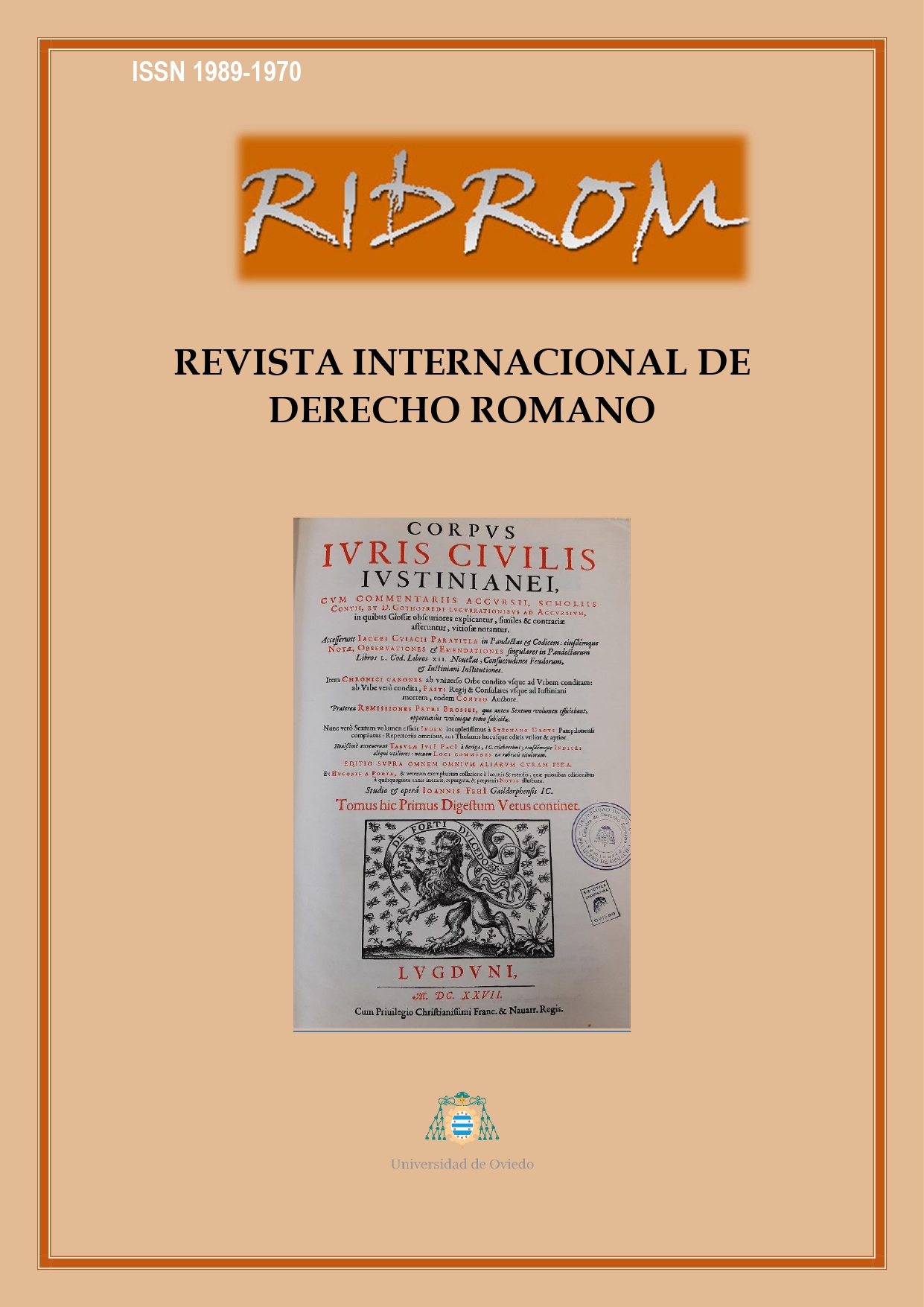Resumen
The analysis of the most important works in relation to the theory of State of Cicero (de oratore, orator, de re publica and de legibus) is characterized predominantly by the philosophical approach. According to Cicero the ideal i.e. idealistic State is not exclusively an organic unit but a juridical community encompassing all men (inhabitants). The concordia omnium is for Cicero of outstanding importance based on the consent between the senate and the ordo equester which is the precondition of the consensus Italiae without which no social peace could exist. The concordia ordinum and the consensus omnium bonorum guarentee the possibility of the modification of the constitutional order of the Roman State. As far as the future of the State is concerned Cicero attributes particular significance to the protection of the property of the family intended as a community. The property (ownership) is viewed as a unifying force of the State. The iuris consensus is also regarded as a basic component of the idealistic res publica. The author of the study emphasizes that the Ciceronian doctrine of the ius naturae is of Stoic origin limiting the legislative power. Along with the consensus iuris we find in the Ciceronian theory of State the communio utilitatis. The communio utilitatis originates in the economic sphere i.e. life of the different social strata of the Roman State. The Ciceronian theory of State is with no doubt subject of a certain interpretatio multiplex due to the fact that we can find in it elements of the republican form of State, of the libertas, of the rejection of the tyrannis, of the mikte politeia, of the idea of the inviolability of the private property as well as of the political, juridical and moral equal treatment of the citizens. Cicero’s outstanding historical achievement is that he was the very first thinker in the classical i.e. Graeco-Roman Antiquity who analyzed in a global, comprehensive way the economic, political and moral elements of the constitutional State..Descargas
Los datos de descargas todavía no están disponibles.

